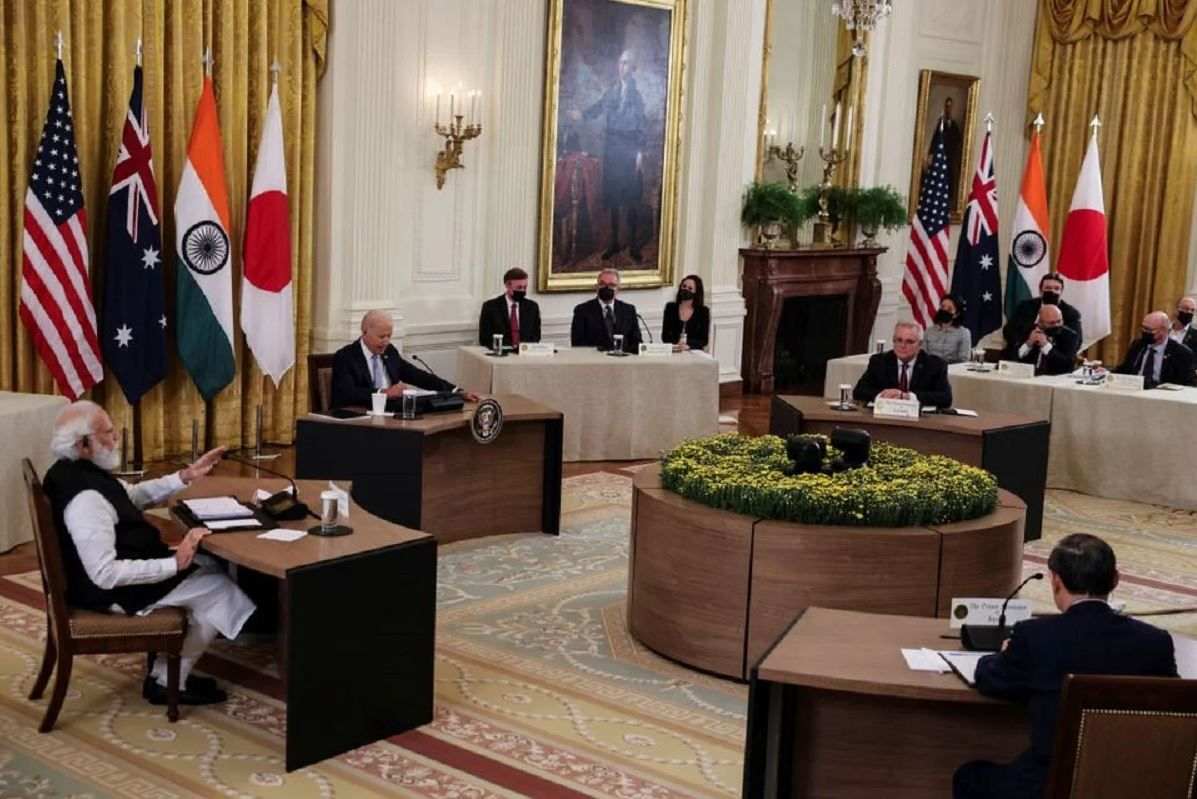In their first meeting, the heads of state and government of the United States, Japan, India, and Australia agreed to work toward the establishment of a free and open Indo-Pacific region that is “unafraid of coercion.” Despite their common concerns about China, the leaders maintained a unified front at their first-ever in-person encounter.
The conference of the Quad, as the gathering of four major democracies is known, will take place at the White House for two hours. The meeting will be carefully observed in Beijing, which has slammed the group as “doomed to fail.”
In a joint statement issued after the talks ended, US President Joe Biden and Prime Ministers Scott Morrison of Australia, Yoshihide Suga of Japan, and Narendra Modi of India said they “support the rule of law, freedom of navigation and overflight, peaceful resolution of disputes, democratic values, and the territorial integrity of states.”
Despite the fact that China was not addressed in the four leaders’ public comments, or in the long joint statement and factsheet that followed, Beijing was obviously on the minds of the four leaders.
A number of times in their statement, the leaders emphasised their commitment to rule-based behaviour in a region where China has been attempting to stretch its muscles.
In a joint statement, the leaders reaffirmed their commitment to promote a free, open, rules-based system that is founded in international law and unafraid of coercion in order to enhance security and prosperity in the Indo-Pacific territory and beyond.
Additionally, the leaders of the Quad expressed support for tiny island nations, particularly those in the Pacific, in order to strengthen their economic and environmental resilience.
The leaders discussed measures to increase the availability of vaccinations across the globe, praising India’s intention to restart vaccine exports in October.
Following the meeting, Suga informed reporters that the nations had decided to collaborate on vaccines, renewable energy, and space exploration, as well as to conduct an annual summit conference.
According to India’s foreign secretary, Modi informed his fellow Quad leaders that his country will allow the shipment of 8 million Covid-19 vaccine doses by the end of October, as part of an agreement the grouping made in March to provide a billion doses to the Indo-Pacific region of vaccines.
The plan to deliver a billion doses throughout Asia by the end of 2022 came to a grinding halt when India, the world’s biggest vaccine manufacturer, halted shipments in April amid a major Covid epidemic in the country’s own population.
When India resumes vaccine exports, the country has said that it would prioritise the COVAX worldwide vaccination programme as well as neighbouring nations.
The Quad unveiled many new agreements, including one to improve semiconductor supply chain security as well as one to fight illicit fishing and increase marine domain awareness, among other things.

